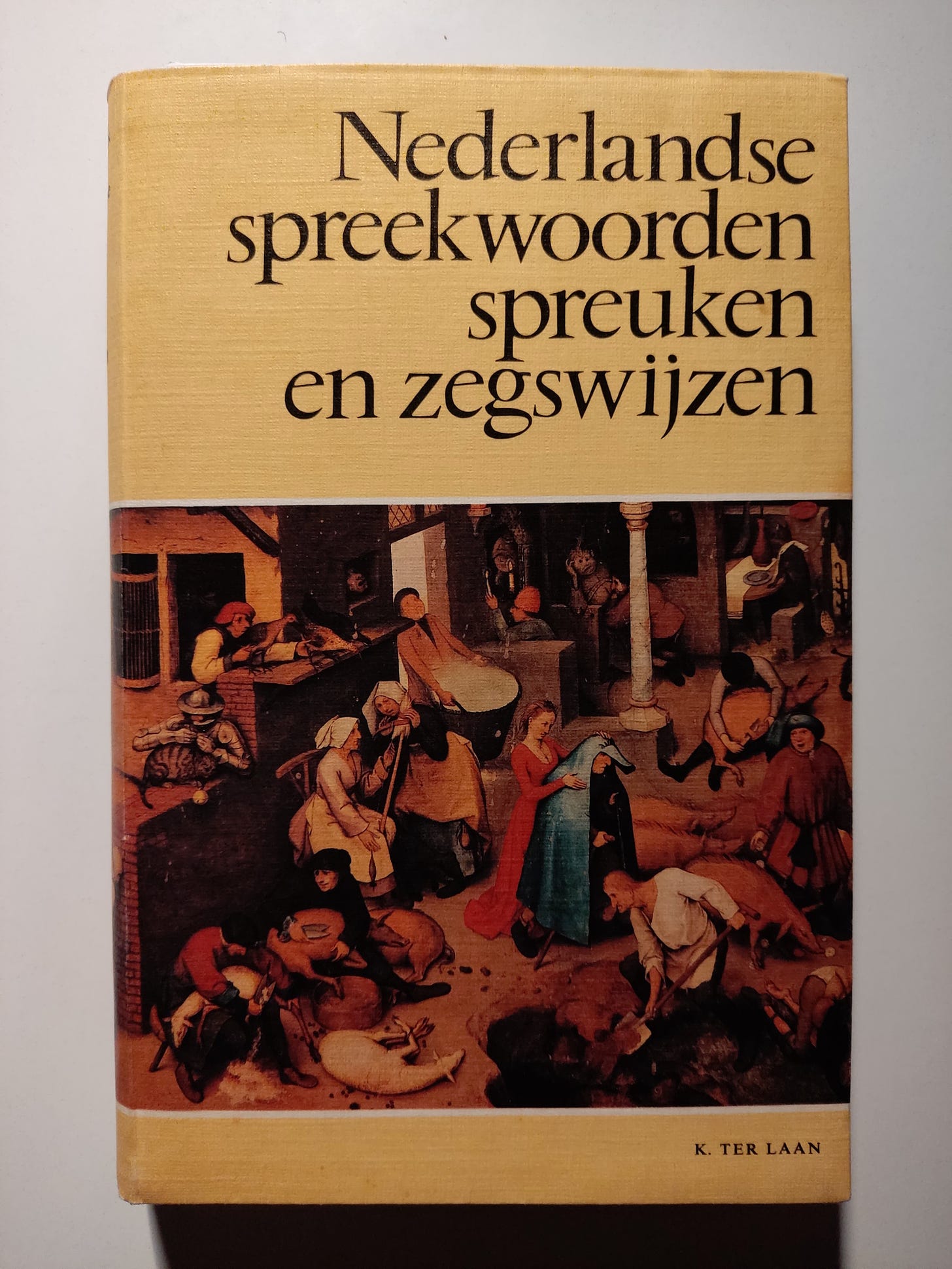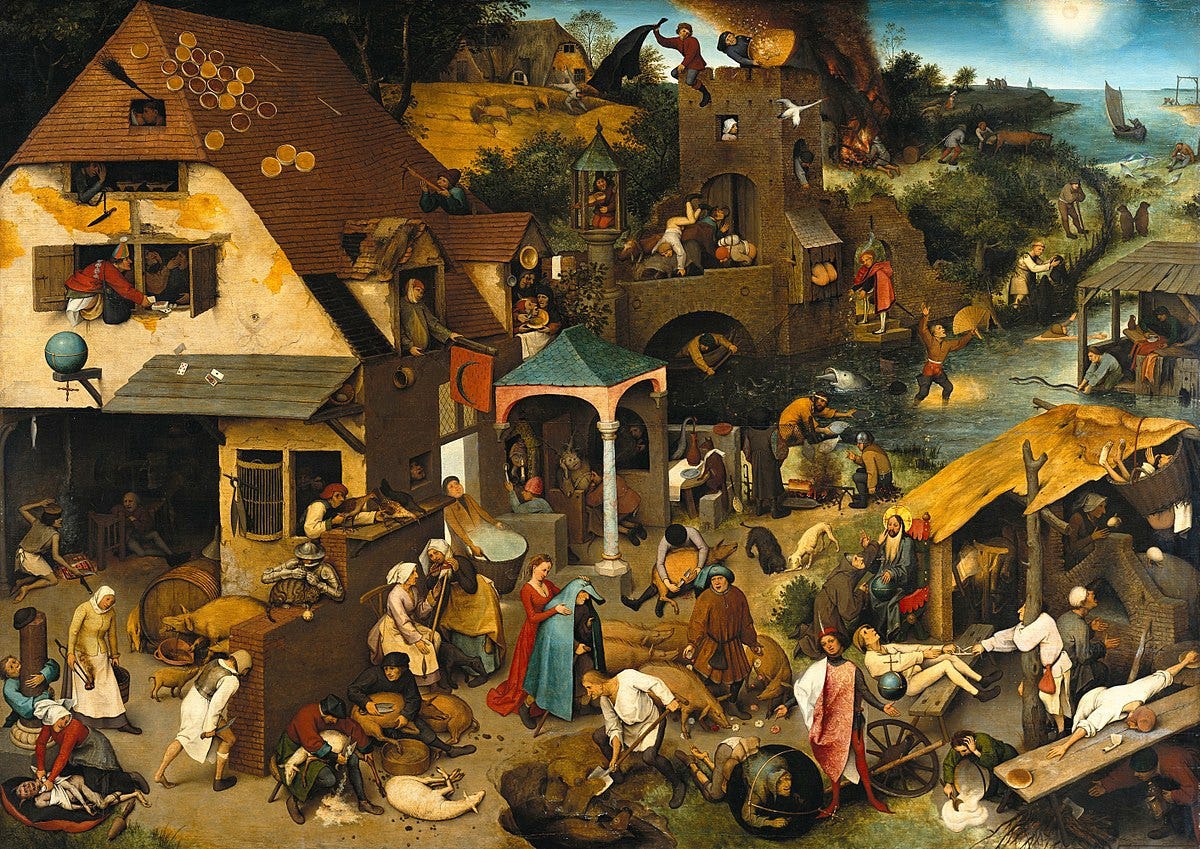This will be the introduction to a series on proverbs I am starting. Some time ago, I stated that sufficient study of proverbs could perhaps replace the study of philosophy entirely.
This was said after receiving a book that is a collection of Dutch proverbs and sayings. The book is lying here, on my desk, and whenever I have some spare time I go through it. The wisdom encapsulated in these sayings is immense, and it is a true shame that most of these sayings have fallen out of use.
It is an interesting question, what is a proverb? It is a question I won’t be dealing with directly. But perhaps we’ll stumble upon an answer along the way.
So there I am, reading a proverb here and there, whenever time permits. Having the wisdom of the saying silently creep into my writing. Today, I saw someone on Twitter share some interesting proverbs from their own language, and I decided it was time to share some of the ones I have come across.
This will be a series, I do not know how long. Each time I will share one or multiple Dutch proverbs, with an English translation, and offer a short commentary on the philosophical significance of it. Proverbs will generally be selected on the basis of the general themes of my work, and on the basis of whatever might be going in the world at the time. I expect we will mostly deal with proverbs about the nature of truth, confusion, deception, questioning, lying, et cetera.
Above, you see the 1559 painting “Nederlandse Spreekwoorden” by Pieter Bruegel the Elder. You recognize it from the cover of the book I shared. In it, we see all sorts of scenes, each signifying a certain proverb. It is estimated that some 112 proverbs are to be found in the painting. In the painting, Bruegel primarily sought to display the foolishness of mankind through the proverbs he was expressing. This is clear from an earlier title of the work: “De dwaasheid van de wereld” (the folly of the world). But just as much as our proverbs tell us about the folly of the world, they also speak to us of its wisdom. Thus, proverbs can aid us in the two most important tasks of philosophy; the critique of stupidity, and the expression of truth.
Let this serve as an introduction.
-Tólma







Cool Project, looking forward to it!